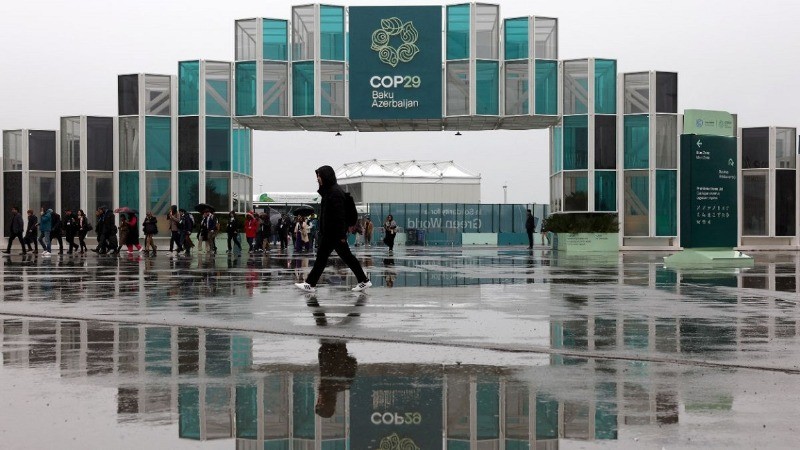
The ongoing COP29 summit in Baku, Azerbaijan, is on track to be marked by slow progress, and the likelihood of it concluding without a concrete declaration has many climate activists and diplomats worried. Despite this, India remains hopeful of securing some strategic gains at the global climate conference.
The absence of key leaders, including US President Joe Biden and many European Union heads, has further clouded the summit's prospects. The summit's venue, Baku, situated in a petro-state, adds another layer of complexity. Azerbaijan's President, Ilham Aliyev, has often referred to oil as “a gift from God,” a sentiment that clashes with the global push for more sustainable energy solutions. This, combined with the fact that the last COP summit was also held in an oil-rich nation, the UAE, has led to criticism from climate advocates who believe such summits may no longer serve their purpose. A letter signed by many former COP organizers and UN figures, including Ban Ki-Moon, echoed this sentiment, urging a significant overhaul of the COP process.
Nevertheless, India has continued to push for the inclusion of critical issues close to its interests. One of the key proposals is increasing the climate financing target from the previously agreed $100 billion annually to at least $1.3 trillion. This increase is vital to support climate mitigation efforts in developing countries.
“COP29 provides India with a critical opportunity to take a leadership role in global climate negotiations,” said Manish Dabkara, Chairman of EKI Energy Services, a global leader in carbon credit development. “The G77 group, including India, has advocated for the funding boost to $1.3 trillion annually, far surpassing the existing $100 billion pledge, to meet the climate needs of developing nations.”
India insists that climate finance obligations should remain with developed countries, citing their historical contributions to global emissions. India rejects any proposal to shift the responsibility to nations based on their current economic capacity or emissions profiles.
Additionally, India is pushing for the finalization of Chapter 6 of the Paris Agreement, which aims to establish carbon markets. With updated strategies to leverage carbon credits, India sees the potential for new revenue streams from projects such as biogas, reforestation, and sustainable agriculture.
“This will open new opportunities for India in the carbon credit market, helping the country further its climate goals while boosting the economy,” said Piyush Sohani, Country Director at Systema Bio, which focuses on converting organic waste into renewable energy.
While India strives to represent the Global South’s interests, advocating for equitable climate action that doesn’t burden developing nations, it is uncertain whether it will address the European Union's Carbon Border Adjustment Mechanism, which could affect India's exports to Europe.
The absence of key figures, including Prime Minister Modi and Environment Minister Bhupender Yadav, presents a challenge to India's efforts at this summit, limiting the scope for direct negotiations on these pressing issues.
COP29: India’s Key Role in Advancing the Global South’s Climate Goals
COP29 Begins in Azerbaijan: Nations Face Key Climate Finance Talks Amid Rising Pressures